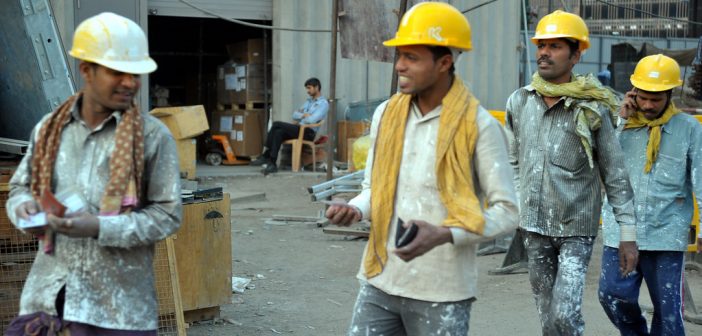India, a nation with a rapidly growing economy and a diverse workforce, faces a critical challenge: ensuring fair and dignified wages for its workers. While minimum wages exist, their effectiveness is hampered by the lack of a strong, universal law. This report delves into the current state of minimum wages in India, highlighting the need for a more robust legal framework to protect the most vulnerable workers.
A Patchwork of Minimum Wages:
India’s minimum wage system operates through a decentralized approach. The Minimum Wages Act of 1948 empowers both the central government and individual states to set minimum wage rates for various sectors and skill levels. This leads to a complex and often uneven landscape:
- State Variations: Minimum wages vary significantly across states, with some offering significantly lower rates than others. For instance, Delhi’s minimum wage for unskilled workers stands at INR 17,494 per month (as of October 2023), while states like Chhattisgarh offer a mere INR 4,000 per month.
- Sectoral Disparities: Minimum wages are further categorized based on sectors, leading to discrepancies within states. Unskilled workers in agriculture often receive lower wages compared to their counterparts in construction or manufacturing.
- Non-Binding Floor: Notably, the national minimum wage set by the central government, currently at INR 176 per day, is not legally binding. This weakens its effectiveness as a benchmark for state-level minimum wage determinations.
Consequences of a Weak System:
The current minimum wage system in India suffers from several shortcomings:
- Low Wages and Poverty: The existing minimum wages often fail to meet the basic needs of workers, particularly in rural areas. This contributes to widespread poverty and perpetuates a cycle of vulnerability for millions.
- Wage Inequality: The significant variations in minimum wages across states and sectors exacerbate income inequality, creating a stark gap between the rich and the poor.
- Informal Sector Exploitation: The lack of a strong minimum wage law disproportionately affects workers in the informal sector, who are often denied basic labor protections and fair wages.
The Need for a Strong Minimum Wage Law:
To address these challenges and ensure a more equitable wage system, India requires a robust minimum wage law with the following characteristics:
- National Minimum Wage Floor: A legally binding national minimum wage, set at a level sufficient to meet basic needs, should be established. This will provide a consistent baseline across the country.
- Regular Reviews and Adjustments: The minimum wage should be periodically reviewed and adjusted based on inflation, changes in living costs, and productivity trends.
- Universal Coverage: The law should encompass all sectors and categories of workers, including those in the informal sector, ensuring fair wages for all.
- Effective Enforcement Mechanisms: Robust enforcement mechanisms are crucial to ensure compliance with the minimum wage law. This includes strengthening labor inspection systems and providing accessible grievance redressal channels for workers.
Conclusion:
India’s current minimum wage system, with its inconsistencies and lack of legal teeth, fails to adequately protect the most vulnerable workers from exploitation and poverty. Implementing a strong, universal minimum wage law with a binding national floor, regular adjustments, and effective enforcement mechanisms is crucial to ensure fair wages, reduce income inequality, and create a more equitable and just labor market in India. This will not only empower workers but also contribute to a more inclusive and sustainable economic growth for the nation.





